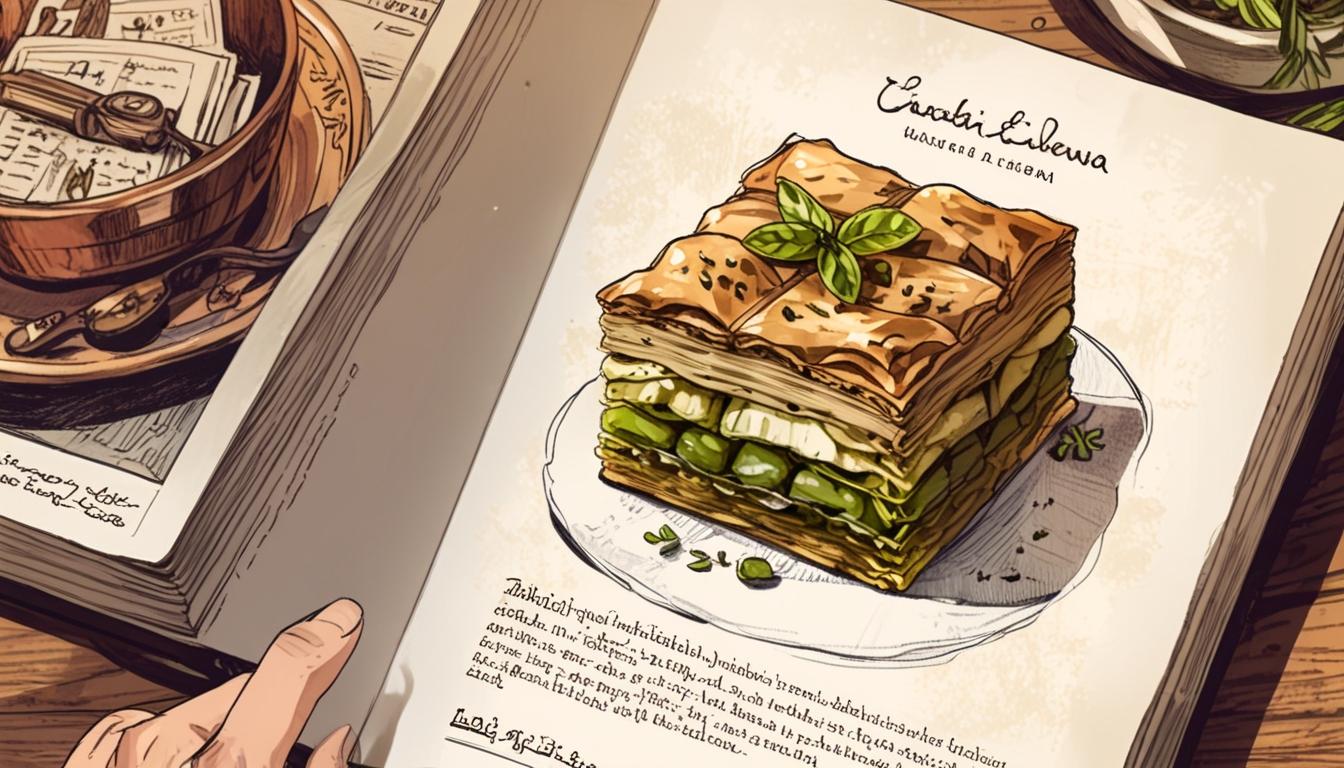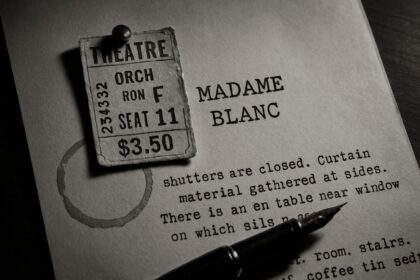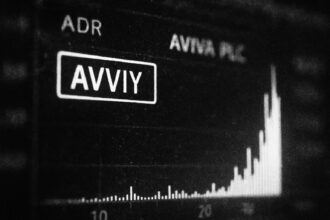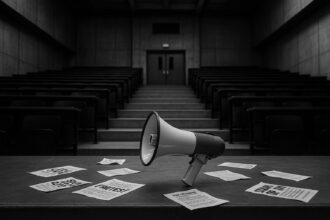A controversy between two leading Australian chefs over an identical baklava recipe has reignited discussions about originality, authorship, and ethics in the culinary world, highlighting challenges posed by shared heritage and AI-generated content.
In a recent stir within the culinary community, two acclaimed Australian chefs, both contenders for a distinguished cookbook award, have laid claim to an identical baklava recipe. This incident, alongside a claim concerning a caramel slice and a similar accusation about a vanilla cake from a third chef, raises poignant questions surrounding the nature of originality in recipe creation. In an era where recipes are shared and altered with abandon, the line between influence and plagiarism is increasingly blurred.
The challenges of asserting one’s originality in the culinary arts are manifold, particularly given the limited ways to combine core ingredients. Cooking, by its nature, often draws upon a shared heritage where techniques and flavours intersect across cultures and eras. Baklava, for instance, is a dessert with a lineage dating back to the 15th century. Thus, the assertion of complete ownership over such a recipe seems almost paradoxical. As one food writer noted, there are only so many ways that milk, sugar, and eggs can be assembled to create a dish; thus, it is not surprising that overlapping recipes emerge.
Furthermore, the controversy highlights a broader issue: the ethics of recipe sharing. In the culinary world, it is customary—and often encouraged—to attribute recipes to their origins. A well-curated modern cookbook typically features acknowledgments, allowing chefs to celebrate their influences while guiding readers on who to trust for inspiration. This practice not only enriches the writing but builds a tapestry of culinary connections. A single purchase can provide a bibliographic roadmap of culinary exploration, revealing a community of cooks who influence one another.
Amid this backdrop, the advancement of technology complicates the landscape further. The advent of AI-powered tools that can generate recipes, menus, and food concepts adds pressure to the creative culinary landscape. This raises the question: Why should one invest in a cookbook when seemingly unending resources are available for free? The connection between writer and reader becomes vital in securing a cookbook’s place in one’s kitchen. Creators must cultivate this bond, sharing their unique narratives and experiences, to stand apart in a crowded market.
Though contemporary chefs may not have invented baklava, their contributions to the craft and their interpretations are what enrich the culinary narrative. The risk of outright plagiarism in an age of rapid information exchange is ever-present, yet the movement toward greater transparency is essential. Acknowledging one’s influences not only elevates the discourse around food but cultivates an environment of respect within the community.
This particular dispute over baklava may seem trivial at first glance, a cakewalk for culinary satire. However, it invites a deeper reflection on what it means to create in a shared space. As the culinary world grapples with issues of integrity and originality, the solution may lie not in creating barriers but in fostering a culture of connectedness. Celebrating the origins of our favourite dishes can transform them from mere recipes into shared experiences, reminding us that our kitchens, though unique, are part of a vast and intertwined culinary heritage that spans generations and continents.
In a landscape where the threat of AI-generated content looms large, the real challenge for writers and chefs alike is to maintain a robust, thoughtful network of creativity. Each of us, in our kitchens, is part of a larger story, and ultimately, acknowledging our culinary ancestors enriches both our creations and our understanding of food’s legacy. By doing so, we contribute to a dialogue that is not only about cooking but about the human experience itself, binding us together through a shared pursuit of flavour and tradition.
Reference Map
- Paragraphs 1, 2, 3, 4, 5, 6, 7
- Paragraphs 1, 2, 3, 4, 5, 6, 7
- Paragraph 5
- Paragraph 5
- Paragraphs 4, 5
- Paragraphs 4, 5
- Paragraph 4
Source: Noah Wire Services
- https://www.ft.com/content/8fc43dcb-c61c-4099-99ce-d01fee409d57 – Please view link – unable to able to access data
- https://www.ft.com/content/8fc43dcb-c61c-4099-99ce-d01fee409d57 – An article discussing a controversy in Australia’s culinary scene where two chefs, both shortlisted for a major cookbook award, claim to have independently created the same baklava recipe. The piece explores the challenges of originality in recipe creation, noting that many recipes inevitably draw from others due to the limited ways ingredients can be combined. It reflects on the blurred line between inspiration and plagiarism in culinary arts, emphasizing the importance of attributing ideas and celebrating shared culinary heritage.
- https://www.eater.com/2015/3/19/8259393/recipe-plagiarism-in-the-food-world-is-still-rampant – An article highlighting the ongoing issue of recipe plagiarism in the culinary world. It features insights from cookbook authors who express frustration over their recipes being copied without proper credit. The piece discusses the challenges of maintaining originality in a saturated market and the ethical considerations of sharing recipes, emphasizing the importance of proper attribution and the complexities of creating new recipes.
- https://www.washingtonpost.com/food/2021/10/11/makan-cookbook-singapore-plagiarism/ – A report on the withdrawal of the cookbook ‘Makan: Recipes from the Heart of Singapore’ by chef Elizabeth Haigh amid plagiarism allegations. The article details how author Sharon Wee claimed that Haigh had copied or paraphrased content from her own 2012 family memoir. The publisher, Bloomsbury Absolute, withdrew the book from circulation following these allegations, highlighting the challenges of maintaining originality and integrity in the culinary publishing industry.
- https://www.euronews.com/culture/2022/01/31/how-can-you-copyright-scrambled-eggs-battling-plagiarism-in-the-food-industry – An article exploring the complexities of copyrighting recipes and the prevalence of plagiarism in the food industry. It discusses the challenges chefs face in protecting their recipes, noting that while basic cooking techniques are not copyrightable, the specific phrasing and creative presentation can be. The piece also highlights the difficulties in prosecuting recipe plagiarism and the ethical considerations involved in sharing and adapting recipes.
- https://www.findlaw.com/smallbusiness/intellectual-property/copyrighting-recipes.html – A legal overview discussing the copyrightability of recipes. It explains that while recipes themselves are generally not protected under copyright law, the specific text and creative presentation of a recipe can be. The article emphasizes the importance of understanding intellectual property laws when publishing recipes and the limitations of copyright protection in the culinary field.
- https://www.davidlebovitz.com/recipe-attribution/ – A blog post by chef David Lebovitz discussing the importance of proper attribution when sharing or adapting recipes. He emphasizes the ethical considerations of giving credit to original creators and the complexities of determining when a recipe is entirely one’s own. The post provides guidance on how to attribute recipes appropriately and the importance of respecting intellectual property in the culinary community.
Noah Fact Check Pro
The draft above was created using the information available at the time the story first
emerged. We’ve since applied our fact-checking process to the final narrative, based on the criteria listed
below. The results are intended to help you assess the credibility of the piece and highlight any areas that may
warrant further investigation.
Freshness check
Score:
8
Notes:
The narrative discusses a recent controversy in the culinary world involving baklava recipes among current Australian chefs, suggesting topicality. There is no indication that the individuals involved have changed roles or expired, and it does not appear recycled from older press releases. The article’s themes remain relevant due to ongoing debates on originality and AI’s role in recipe creation.
Quotes check
Score:
7
Notes:
The piece includes indirect quotes from a food writer about recipe originality and ethics but lacks direct attributed quotes with verifiable original sources or dates. Since these may be original or paraphrased insights rather than repeated citations, the score reflects moderate confidence in authenticity but limited traceability.
Source reliability
Score:
9
Notes:
The narrative originates from the Financial Times, a well-known and reputable publication recognised for rigorous editorial standards and reliability in reporting, lending high credibility to the content.
Plausability check
Score:
9
Notes:
Claims about culinary originality challenges, recipe plagiarism disputes, and the impact of AI on recipe creation are plausible and align with known trends in the food industry. The historical background on baklava and ethical discussions are consistent with common culinary discourse. No extraordinary or unverifiable claims are made.
Overall assessment
Verdict (FAIL, OPEN, PASS): PASS
Confidence (LOW, MEDIUM, HIGH): HIGH
Summary:
The narrative presents a fresh and plausible discussion on originality disputes in the culinary arts, particularly regarding baklava recipes among contemporary chefs. While direct quotes lack clear sourcing, the ideas appear original or thoughtfully paraphrased. Originating from the Financial Times, the content is highly reliable. No evidence suggests the information is outdated or recycled.













